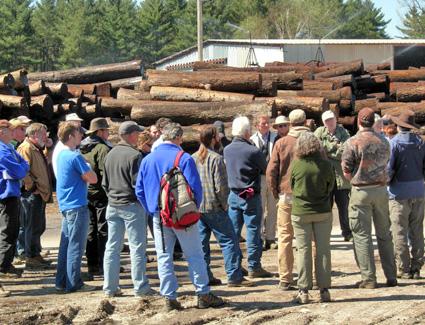Emerging Research on Wood Energy Biomass for the Northern Forest: Connecting Researchers, Policy-Makers and Communities

With rising fuel costs and climate change concerns, many people throughout the Northern Forest region have turned their attention to forest biomass to meet energy needs. As interest increases in expanding use of wood biomass energy, so too do concerns about its sustainability. In all four states, researchers are examining environmental, economic, and social questions regarding woody biomass energy. At the same time, communities, businesses, institutions, and government agencies are exploring the viability and expanding the capacity of woody biomass as an alternative energy source.
As this field evolves, it is important for researchers to communicate with each other and with engaged stakeholders. NSRC researchers and partners hosted a research symposium focused on woody biomass energy for the Northern Forest at the University of Vermont in April 2011. About 120 participants, including researchers from the northern U.S. and eastern Canada, community members, policymakers, agency representatives, funders, non-profits, and businesses presented current research, shared information needs, and built relationships among those working on woody biomass energy issues.
Presentations covered seven interdisciplinary themes: Wood Supply and Demand; Efficient Technologies; Management and Harvesting Practices; Human Health and Air Quality; Social and Economic Analyses; Climate Change, Carbon Dynamics and Greenhouse Gas Emissions; and Sustainability Safeguards. Two field trips brought participants to Middlebury College’s biomass gasification plant and to Mt. Abraham High School’s wood chip facility and related forest sites in Addison County. Evaluations indicted that about 70% of participants felt presentations were “very good” or “excellent” and the event was “very” or “extremely useful” to their work. Materials from the event are available at www.uvm.edu/forestcarbon/symposium
